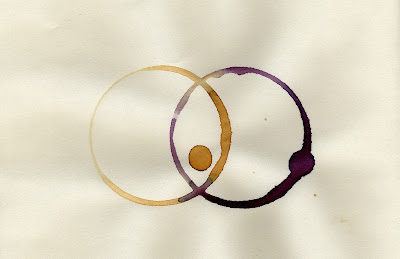Seven meditations on money from a poet who wishes she had
thought of the book title The Financial
Lives of Poets (she didn’t)
1) “Money often costs
too much.” —Ralph Waldo Emerson
The poet filed her taxes for the previous year—a year she
dedicated to her art. She realized that she technically lives at her country’s
poverty level. To her continued wonderment, she finds ways to see many other
countries without debt. (She would like to add that she has no trust fund,
offshore accounts, or supporting spouse—though she has nothing against any of
those!)
She starts to wonder: do the little digits on pieces of
paper or computer screens really mean anything?
2) “Money is like a
sixth sense—and you can’t make use of the other five without it.” —William
Somerset Maugham
And
then she sees a pair of boots she’d REALLY love. That aren’t on sale. That
would chip away at her dedication pay her annual IRA contribution. And she
realizes that yes: those little numbers mean something.
But
not everything.
3) “Money will buy
you a fine dog, but only love can make it wag its tail” —Richard Friedman
Like a good egalitarian, the poet has dated both rich and
poor men over the years. Their financial status had little to do with the end
of those relationships—but she did notice that the ones who respected their
finances respected themselves—and her.
The day the poet realized she loved herself, she realized
she was a wealthy woman.
4) “Budget: a
mathematical confirmation of your suspicions.” —A.A. Latimer
The
poet used to have a little budget sheet. Back in high school. But since she has
spent most of her adult life either self-employed or with erratic income, she
long ago moved from budgets to savoir-faire. This works. Except when it almost doesn’t
(see #2).
5) “All I ask is the
chance to prove that money can’t make me happy.” —Spike Milligan.
Go
ahead and try her!
6) “Money is the
opposite of the weather. Nobody talks about it, but everybody does something
about it.” —Rebecca Johnson
The poet, who once gave up financial insecurity for Lent,
observes:
She has been the girl with the salaried job and the
vacations to far-flung lands.
She has been the girl living in an unplumbed cabin after the
economic downturn, learning how to fill a bag of groceries for just $20.
She discovered something in those contrasts: she wrote more
poetry in the cabin than she did with the salary, and she remembers those poems
with far more fondness than direct deposit paychecks. (Though she’d truly be
game for the opportunity of #5.)
7). “There is the
natural economy, and there is the Spirit economy. Though I have no idea how it works, I know it does work.”—Anna Elkins
The poet has come to believe that the Spirit economy
transcends the money-for-time model, numbers with lots of zeros, and all the dog-eared
financial planning books on her bookshelf.
She has learned that you can invest in friendships, give
extravagantly, travel the world, and buy organic chocolate at Grocery Outlet
with very little money and very much delight. (Though she’s game to try life with
very much money and very much
delight! Again, see #5.)
Maybe most importantly, she has learned to be grateful for a
life that inexplicably works—partly because she doesn’t put her faith in her
own ability to earn it (though she can and does work hard) but instead is
thankful for both the visible reality and the invisible. And she has a hunch
that the realm beyond the “possible” has a far stronger currency!
we are saying thank
you
we are saying thank
you and waving
dark though it is.
—W.S. Merwin
from “Thanks”











